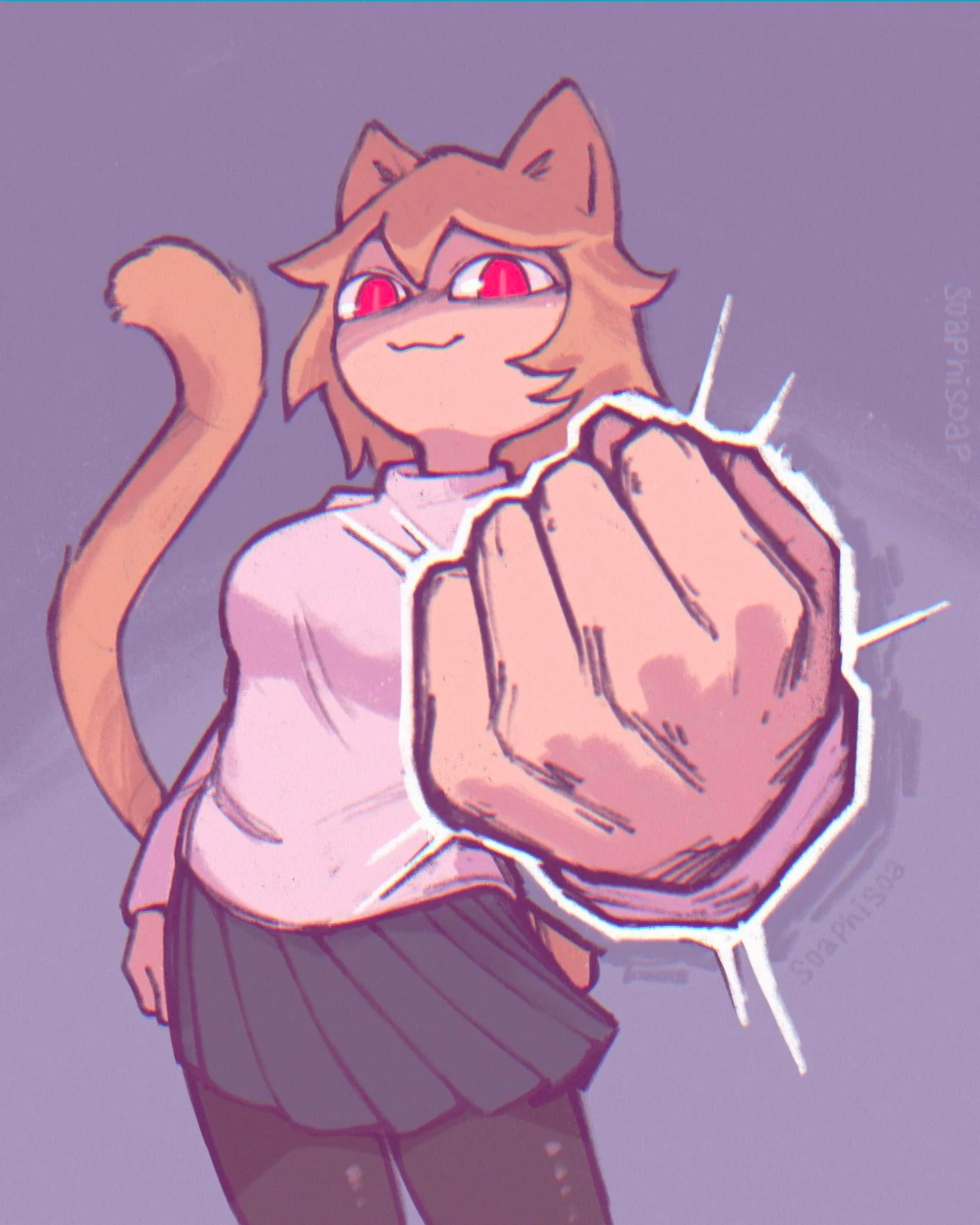TRPG Player Aims For The Strongest Build In Another World ~Mr. Henderson Preach the Gospel~ - Vol 1 Chapter 9
- Home
- All
- TRPG Player Aims For The Strongest Build In Another World ~Mr. Henderson Preach the Gospel~
- Vol 1 Chapter 9 - Childhood – The Summer at Age Eleven Part 2
Vol 1 Chapter 9 – Childhood – The Summer at Age Eleven Part 2
Really, choosing one’s future in this world is tough.
This is because Imperial Law imposes employment restrictions.
A farmer’s child becomes a farmer. A hunter’s child becomes a hunter. A blacksmith’s child becomes a blacksmith. The notion that had been fading in the previous world remains robust here—so much so that it is even enshrined in law.
And that’s hardly surprising. With no advanced machinery, most work must be handled by human labor. For tasks vital to the state, it is essential that many people be employed, or else chaos ensues.
By contrast, in the previous world, as people flocked to desk jobs—leaving agriculture and construction with a severe labor shortage—it became clear that everyone wants a job that is easy and lucrative, even if efficiency is boosted by machines.
Furthermore, even in the Triple‐Line Empire, where efforts to raise literacy rates were underway, the same phenomenon threatened to occur.
It’s not hard to understand. Since more people are unable to attend private academies than can, the demand for intellectual labor, such as that of a scribe, is unending. Even Mr. Grant, who works as a scribe in this rural manor, manages to make a living by writing only a few letters or petitions each month.
However, in today’s social system—where even food cannot be supplied by imports—if too many people abandon civil engineering and agriculture for such work, it would create serious problems. To prevent this, Imperial Law enforces employment restrictions as a fail-safe.
Though there is some fluidity via marrying into a family or the registered indentured apprenticeship system, jobs are as scarce as part-time gigs in remote backwaters, and without connections, breaking in is nearly impossible. In effect, the options available to me are few and far between.
Under Imperial Law, those from farming backgrounds are exempt from restrictions only in roles like adventurer ruffians, mercenary yakuza, soldiers, or vigilantes. Apart from that, one can only work as a day laborer, miner, or as a farmer in territories suffering from labor shortages.
Yet, since there is no local recruitment for regular soldiers, there’s no way to become one nearby; and regrettably, even though the vigilante group receives training, I remain only a “candidate.” At present, the gap left by Mr. Ryukke’s departure has been filled, leaving no vacancies for a full-time position.
Moreover, even starting anew as a farmer requires capital. I’ve heard that trying to work as a farmer in another manor without any seed money is essentially akin to becoming a serf—practically impossible. I’ve also heard that for minors, securing day labor is difficult. In fact, rather than taking on day work, it would be far more productive to attend a private academy and inherit the family estate from the start.
Thus, the sad truth is that the only practical option is to become an adventurer.
There’s also the trick of being adopted and switching the family business, but I wouldn’t even consider that in such a small manor. Even then, it hardly expands the range of choices.
It’s a troublesome state of affairs. There are those who call themselves writers, playwrights, traveling bards, or actors—essentially freeloaders—but I don’t think one can realistically make a living that way, nor do I feel any real admiration for it. Even if I were to pour my skills into that field and enter the entertainment industry, I doubt it would last long.
“What’s troubling you?”
A voice, as eerie as always, resonated from beneath her chin. It was Margit—the one who always dangles from my neck, no matter how deeply I’m lost in thought. When her hazel eyes and twin sets of compound eyes fix their gaze on me, I find myself frozen.
In fact, lately it seems her eyes have deepened from hazel to a richer shade. The soft brown has shifted—not amber, but taking on a metallic texture.
“I, too… being the eldest daughter, have plenty on my mind…”
A creeping, unpleasant sweat broke out. It felt as if her presence was signaling something, but my brain couldn’t process it properly. There’s something about those eyes that just makes me freeze.
It’s as if her steady gaze is caressing my eyes, trying to reach into my brain—a bizarre, inexplicable notion. Yet, despite its fleeting nature, that thought feels oddly real.
As though it were really happening.
“So, if you’re troubled, lean on me…”
The six legs wrapped around my torso tightened their grip on my stomach—not so much to prevent a fall as to convey a resolute determination to “not let me go.”
Suddenly, I remembered that some spiders exhibit sexual cannibalism.
And she is, after all, a spider.
I can’t recall if any species of fly-catching spiders display that habit, but could it be that she…
“Maybe I can be of help… huh?”
A youthful face came close to my ear, and a whisper-like voice reached me.
Then, as if by some sudden trick, the pressure eased, and the oppressive feeling dissipated.
She had loosened her restraint.
“Hehe, what’s the matter? You look like you’ve seen a ghost in broad daylight.”
She landed on the ground, looking up at me from a low angle with her usual mischievous smile. Her eyes, still a gentle hazel shining in the sunlight, twinkled adorably.
Was it all just a hallucination?
“Now, come on, let’s go. You were practicing, weren’t you? If you don’t work up a sweat, you’ll catch a cold.”
With a teasing, courtly tone, she beckoned me and took my hand. Unlike others—and unlike my little sister Eliza, who has recently been allowed to roam—the touch of her small hand was soft and cold.
The cool, pleasant touch calms my slightly agitated heart.
Now that I think about it, that earlier sensation truly seemed like a lie. Even when I look back, it feels as if it were merely my imagination—a curious feeling indeed.
Well, I suppose there’s no need to rush… Even if I’m told to leave home, it won’t be until after I turn fifteen. Of course, they must take care not to stumble upon newlyweds “getting intimate,” but our parents have surely considered all that, so I’d like to believe it’ll be fine.
They might build a detached wing or expand the house—or even splurge on a standalone home. After all, someone is always destined to remain as a “room resident,” so nothing really changes.
Shaking off that earlier sensation, I grasped her small hand…………
【Tips】 Room Living: In case something happens to the eldest son, it’s common for one person to remain in the family home. Once a proper heir is produced, arrangements such as being adopted into another household within the manor may be considered.
I recall that Margit’s mother had taught her a sure method to secure prey.
The hunting technique of non-web-spinning, fly-catching spider-people has a distinct flavor compared to the ambush style of the Jorougumo type, the robust tarantula type, and the long-legged spider type. They quietly approach, then leap suddenly—ending their prey’s life before it can even react.
They creep in silently from blind spots, entering within range without giving any hint of detection. And once they pounce, they drive a short dagger or a shortbow bolt into a vital point, instantly ending the life. Without venom and without building capture webs, the key to a spider-person’s hunt is to finish it in an instant. Being diminutive and light, they have evolved in this manner to survive.
Taking all this into account, her mother taught her to discern her prey’s vulnerabilities. There are surprisingly few spots where a thrust of a short dagger or a bolt from a shortbow will cause immediate death. Even if many areas might eventually lead to fatal blood loss, if one aims for instant death, only a handful of points can be targeted.
And then there are the blind spots. No matter how small, if an object just over a meter tall moves, it becomes conspicuous. One must read its field of vision, sidestep it, and approach from beyond the range of its senses to stand a chance.
And what is truly fearsome? In a prey’s strength lies an exploitable gap—just as one who wields a sword relies on it, so too does one who bears a bow depend on its arrows.
After countless lessons during our outings, her mother would conclude, “These principles apply equally to men.” Men, too, have their weaknesses—not in the bloody sense of losing their head and dying, but in specific vulnerabilities.
Unfortunately, spider-people of the fly-catching type are utterly detached from human ideals of maturity and voluptuousness. Because of this, their dead weight is minimized to the extreme, rendering them generally short. Even if, on rare occasions, the emblem of femininity develops abundantly, the result is an overall imbalance. They simply cannot age gracefully in the best sense.
Her mother, despite having borne several children, looked so remarkably youthful that when seen alongside her human father, one might easily be convinced they were a grandfather and grandchild. There were even rumors that some humans, lured by the gap between appearance and demeanor, ended up developing unsavory tastes.
Fortunately, the prey Margit had targeted was acceptable. Perhaps because he was a bit younger—and his appearance still closely matched his age—she could exploit his vulnerabilities quite effectively. There were several blows that provided her with a satisfying sense of success.
It appears that he is particularly susceptible to whispered words; every time he shudders, she—staying so close—never fails to notice.
After all, love is a form of hunting. For spider-people like us, whose instincts lean more toward the magical than the subhuman and who find it easy to embrace madness, it is no different.
That is why, as if to declare “This is my prey,” she leaps onto Erich. His warmth is comforting, his kitten‑blue, clear eyes delight her, but above all, she craves the fulfillment and security they provide. Because he was troubled, she had resolved to help him.
He is the fourth son—too young to remain as a room resident—and he doesn’t seem to have prospects for other work. The vacancies in the vigilante group won’t open up for a long while—there are plenty of reserve members waiting in line—and, in any case, he does not have the temperament to outshine others.
Yet his reputation in various circles is excellent. He can recite nearly all the scriptures and hymns from memory, and his earnest prayers would likely be warmly received by the cathedral should he choose holy orders. Moreover, with his remarkable proficiency in court language and literacy—and his keen wit—he might even be well-suited to serve as an official under a deputy governor. There are more than enough adults who recommend him, more than I could count on both hands.
And if he so wishes, he could even join another family as a husband and take over their household—in fact, this might be the quickest option. In truth, like his peers, he also attracts a great deal of attention from the women of the manor. Skilled in both literature and martial arts, he works harder than most and has a knack for earning pocket money, and with his refined features—his blond hair and blue eyes adored by the imperial folk—he is more than attractive enough to be the object of desire for everyone, from young girls to maidens of marriageable age, and even to mature widows in need of a new husband.
I suddenly fantasized about confining him in the hunting cabin I build in the trees, feeling my heart race as a deep warmth surged within me.
Ah, and I recalled that he had also considered the path of an adventurer.
I know well the reality of the adventurer’s life—after all, my mother was an adventurer who traveled the world until she fell in love at first sight with a manor’s hunter and retired. Her tales as a scout in a traveling party were certainly not all pleasant bedtime stories.
That was why, if he were to become an adventurer, I had resolved to follow him on that path. A scout with keen eyes and ears is never superfluous; no matter how clever he may be, after all, he only possesses what falls within “the human range of hearing and sight.”
I, a young yet already consummate woman, watched the boy clinging to me, and a slight smile curved my lips.
I wonder—will he “dance” for me, or will he end up being subdued?
I was simply thrilled at the thought…………
【Tips】 The values of a manor or settlement tend to be determined by the most influential race within that community.

































